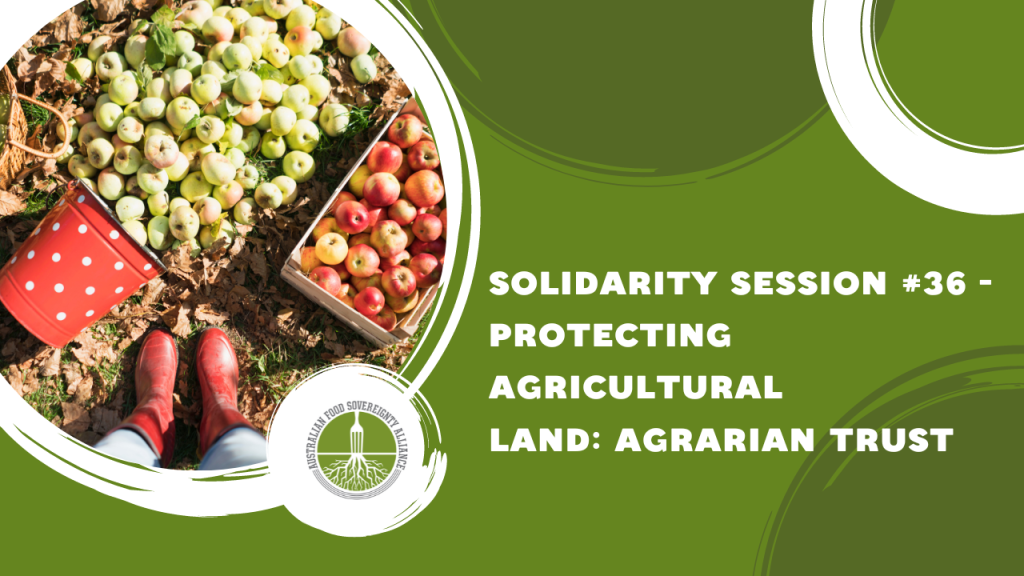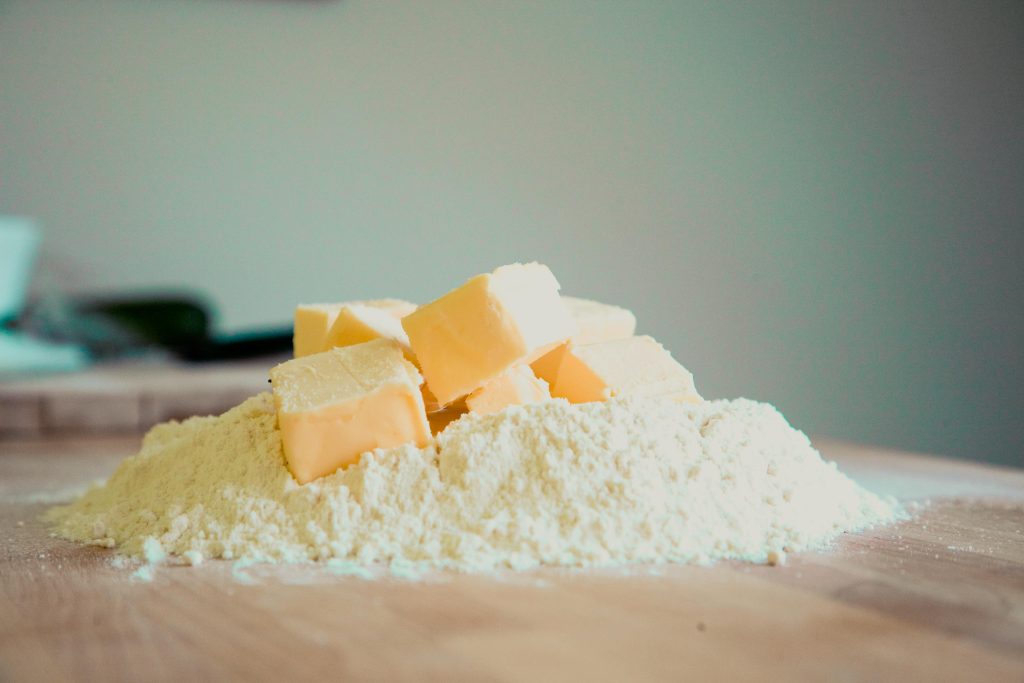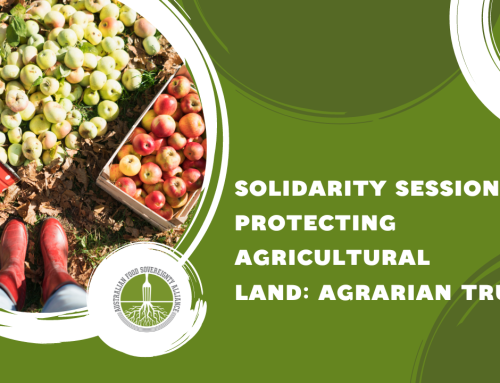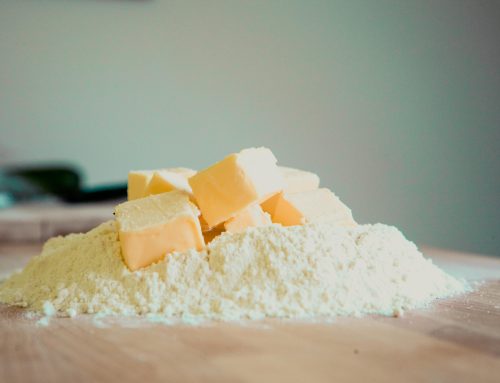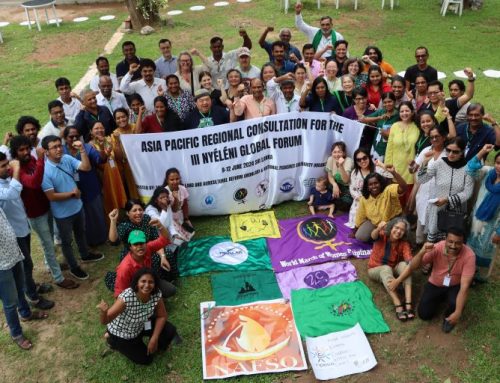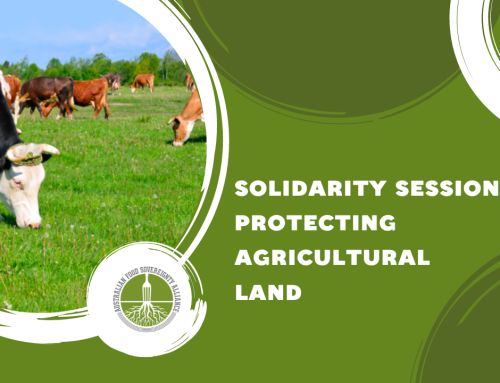The following post is an excerpt by AFSA President Tammi Jonas from her forthcoming cookbook Eat Like the Jonai: Ethical, ecologically sound, socially just and uncommonly delicious, a fundraiser for the collective micro-abattoir being built at Jonai Farms, due out in November. Read more about that project and grab a copy here!
The politics of dessert are largely played out at the household level – do you have a sweet tooth or not? Do you want fruit in that or keep the chocolate pure? Why is flan so slimy? Here at Jonai, Stuart is the sweet tooth, and as mentioned elsewhere in my recipes, I have a very savoury palate. Sometimes I can convince him to add salt to his recipes (mmm, salted caramel ice cream), but more often, he just chucks in a bit of pig feed like out-of-date cranberries or date syrup.
Seriously, though, the politics of sugar have a long colonial legacy, and some say that the history of sugar is the history of capitalism. A key issue in cane sugar production has long been unjust labour conditions, including the enslavement of millions of people that made sugar the commodity it is today. In Sweetness and Power: The Place of Sugar in Modern History (1986), Sidney Mintz examined the production and consumption of sugar, revealing sugar’s explosion onto the global market as a crop grown in Europe’s tropical colonies across the Americas on the back of enslaved labour. Sugar has its origins in India and a long history in China and Persia as an extravagant luxury of the elites, but the brutal emergence of the Atlantic slave trade transformed sugar from a limited luxury to a staple of the diet of the new industrial proletariat from the 19th century onwards. In Australia, cane workers were largely indentured labour from the Pacific Islands, many of whom were ‘blackbirded’ – a euphemism for kidnapping or otherwise coercing people to leave their homes to work for little or no pay in Australian cane fields. The work was difficult and dangerous, and many exploited workers were injured or died.
The biggest sugar company in Australia is what you will find on most supermarket shelves today – CSR – an abbreviation of Colonial Sugar Refining Company, which was bought by Singaporean multinational Wilmar in 2010. In case the labour exploitation in its sugar interests wasn’t enough, CSR expanded into the building industry in the early 20th century, and is the company responsible for Australia’s worst industrial disaster immortalised in Midnight Oil’s ‘Blue Sky Mine’ – the Wittenoom asbestos mine. More than 2000 workers and their family members have been diagnosed with a fatal disease (predominantly pleural mesothelioma and lung cancer) due to exposure to blue asbestos at Wittenoom, as CSR willfully ignored regulated limits to exposure up until 1966. Whether the commodity is sugar or asbestos, the capitalist profit motive devalues human labour and neglects workers’ rights.
The sugar industry was built not only at the expense of human rights, but also that of ecosystem health. Coastal cane fields are major contributors to ocean pollution, which is causing mass coral bleaching, storm damage and soil erosion from deforestation and pesticide and fertiliser runoff. More than one government inquiry has concluded the industry needs to change farming practices, but the Great Barrier Reef continues to die.
As with beef, lamb, grain and cotton, most sugar produced in Australia is exported, an average of 85% makes Australia the fourth largest exporter in the world after Brazil, India and Thailand. Yet while the majority of the 4400 sugar cane farms are family farms with an average size of around 100 hectares, there are just 24 sugar mills owned by eight companies, with 75% of manufacturing owned by foreign corporations. A result of de-regulation and trade liberalisation of the industry in 2006, sugar has gone the way of dairy, with a steady drop in farmers’ income (some sources say only 11% of cane farmers are profitable), and a concomitant loss of small-scale farms. The foreign-owned mills are increasingly importing raw sugar from countries who subsidise production overseas, and even refined white sugar is now often cheaper for these companies to import for sale domestically than to process Australian sugar cane.
There are alternatives to the highly refined white and brown sugars in most Australian pantries, however. Of course, there is honey and maple syrup, neither of which have legacies of human rights and ecosystem abuses. Muscovado and palm sugar are also both available in some grocers, and both have a much lower environmental impact, though because muscovado is from sugarcane, treatment of workers may still be a concern, depending on where and how it is produced. Originally from Barbados, where it is still produced traditionally by smallholders, India and Colombia are also large producers of muscovado. It goes through minimal processing, thereby retaining much of molasses, which gives it a slightly wet, dark brown character, and more flavour than white sugar. Panela is a less commonly found cane sugar very similar to muscovado, produced mostly in Colombia. Palm sugar is even better on the labour and ecological side of things, produced by smallholders from sap extracted from a few different varieties of palms, which are maintained for the sap, and can live up to 100 years. Of course, if everyone was to suddenly demand palm sugar, it would almost certainly go the way of other commodities, with a decline in environmental and labour conditions.
But wait, I haven’t even got to the health impacts on eaters once this unnecessary, extractive, exploitative and damaging crop makes it into the food chain. The average Australian consumes around 50 kilograms of sugar per annum (in the US it is 60kg!), which includes sugar from all sources, not just cane. While honey and the sugars in fruit juices and the like are included in this figure, the majority of intake comes from refined sugars like cane, sugarbeets, and high fructose corn syrup. Although sugar as a nutrient has been a small part of ancestral diets for millennia, the way it is consumed in modern diets is responsible for several adverse health effects, including excess energy consumption, the displacement of nutritious foods, and tooth decay. There is a scientific consensus that the consumption of sugary drinks has contributed to the obesity epidemic, and the health effects associated with sugar consumption place a significant burden on the quality and length of individual lives, as well as on society in the multi-billion dollars in public health costs.
At the risk of moralising, the moral of the story is to limit your sugar intake for your own health, but also the health of the planet and the world’s sugar workers. And preference minimally- or human-scale processed sweeteners like honey and maple syrup, or muscovado or palm sugar, over more highly refined sugars. That’s what I’m doing after researching the sugar industry for this book! And don’t jump to the false solution of artificial sweeteners – UPF is never the answer. But of course more importantly than what you can do alone, it is what governments can and should do to regulate industries such as sugar to prioritise planetary and human health over profits.
